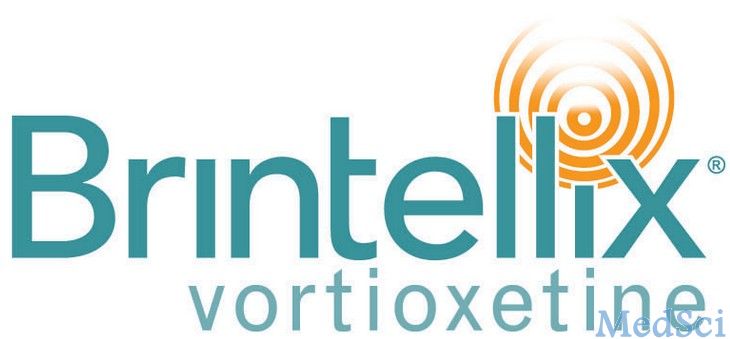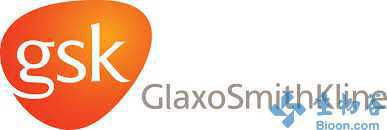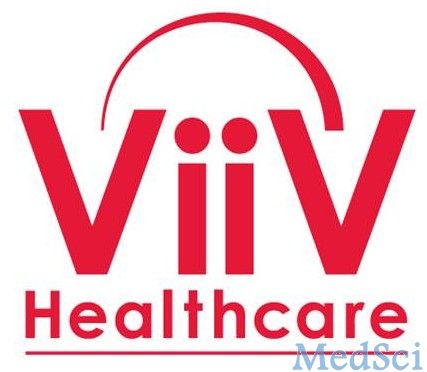百时美在日本提交HCV全口服方案新药申请
2013-11-05 tomato 生物谷
时美施贵宝(Bristol-Myers Squibb)11月2日宣布,已向日本药品与医疗器械管理局(Pharmaceuticals and Medical Devices Agency,PMDA)提交了其丙型肝炎(hepatitis C)实验性全口服方案(daclatasvir+asunaprevir,即DCV+ASV)的新药申请(NDA),寻求批准世界首个无干扰素(interferon-fr
时美施贵宝(Bristol-Myers Squibb)11月2日宣布,已向日本药品与医疗器械管理局(Pharmaceuticals and Medical Devices Agency,PMDA)提交了其丙型肝炎(hepatitis C)实验性全口服方案(daclatasvir+asunaprevir,即DCV+ASV)的新药申请(NDA),寻求批准世界首个无干扰素(interferon-free)、无利巴韦林(ribavirin-free)全口服方案,用于慢性丙型肝炎患者的治疗。
该全口服无干扰素、无利巴韦林方案由daclatasvir(DCV)和asunaprevir(ASV)组成,前者是一种实验性NS5A复制复合物抑制剂,后者为一种实验性NS3蛋白酶抑制剂。
该NDA的提交,是基于一项III期试验的数据。该项研究为开放标签、平行组III期研究,在干扰素不适用/不耐受(IN/I,n=135)和干扰素/利巴韦林治疗无应答(NR,n=87)的慢性丙型肝炎(HCV)基因型1b日本患者中开展,研究中,患者接受为期24周全口服、无干扰素、无利巴韦林的DCV+ASV(60mg DSV +100mg ASV,每天2次)方案治疗后,87.4%的患者实现了持续病毒学应答率(SVR24:治疗结束至随访24周时以灵敏的PCR方法检测血清HCV RNA为阴性,即实现“病毒学治愈”,这是最重要的治疗目标),其中IN/I患者群体SVR24为87.4%,NR群体SVR24为80.5%。此外,年龄大于65岁的患者群体中,IN/I患者群体SVR24为91.9%,NR群体SVR24为85.2%。
该III期研究的数据,将于11月5日提交至美国肝病研究协会(AASLD)第64届年会。
据估计,全世界有1.7亿人感染丙型肝炎病毒(HCV)。在日本,有120万HCV感染者,约70%为基因型1b HCV感染者,该基因型HCV,对当前疗法的应答率最低。此外,在日本,相当多的65岁以上HCV患者,患有更多的疾病相关并发症,同时对基于干扰素的标准疗法耐受的可能性下降。(生物谷Bioon.com)
英文原文:Bristol seeks Japan approval of all-oral hepatitis C treatment
PRINCETON, N.J.--(BUSINESS WIRE)--Bristol-Myers Squibb Company (NYSE: BMY) today announced the submission of a New Drug Application (NDA) to Japan’s Pharmaceutical and Medical Devices Agency seeking the world’s first interferon-free and ribavirin-free treatment regimen for patients with chronic hepatitis C. The submission is based on results from a Phase III study demonstrating that the 24-week, all-oral, interferon-free and ribavirin-free regimen of daclatasvir (DCV) and asunaprevir (ASV) achieved an overall sustained virologic response 24 weeks after the end of treatment (SVR24) of 84.7% in Japanese patients with chronic hepatitis C (HCV) genotype 1b who were either interferon-ineligible/intolerant (87.4% SVR24) or non-responders (null and partial) to interferon-based therapies (80.5% SVR24).
These Phase III data will lead the Presidential Plenary at the Viral Hepatitis Session on November 5 during the 64th Annual Meeting of the American Association for the Study of Liver Diseases (AASLD) in Washington D.C.
Globally, there are 170 million people who are infected with HCV. Of the 1.2 million people living with HCV in Japan, approximately 70 percent of these patients have genotype 1b, which has one of the lowest response rates to current treatments. Further, a significant number of patients with HCV in Japan are over the age of 65, leading to more disease-related complications and a decreased likelihood of tolerating interferon-based therapies, the standard for treating HCV.
“With our submission in Japan, we are pleased to be one step closer to bringing a potential new treatment option to the many people living with HCV in that country,” said Brian Daniels, MD, senior vice president, Global Development and Medical Affairs, Research and Development, Bristol-Myers Squibb. “The all-oral regimen of DCV plus ASV in this study represents the potential for a significant advance in the treatment of HCV infection in Japan, particularly when considering that Japanese patients chronically infected with HCV are often older than in other countries and predominantly infected with genotype 1b, both factors which impact response to therapy.”
The regimen used in the Phase III study resulted in low rates of discontinuation (5%) due to adverse events (AEs). In addition, the rate of serious adverse events (SAEs) was low (5.9%) and varied among patients. Nasopharyngitis was the most common adverse event in the study (30.2%, 67/222).
Study Design and Results
In this open-label, parallel group, Phase III study, interferon- ineligible/intolerant (IN/I) patients (n=135) and interferon/ribavirin non-responder (NR) patients (n=87) received DCV 60 mg once daily plus ASV 100 mg twice daily for 24 weeks. The primary endpoint was the percentage of patients with a sustained virologic response at 24 weeks after the end of treatment (SVR24).
Virologic Response
High rates of SVR24 were achieved in the two studied patient populations – those IN/I patients with limited therapeutic options (87.4%, 118/135) and those NR patients typically associated with low responses to interferon-based therapies (80.5%, 70/87).
Patients ≥ 65 years of age had SVR24 rates similar to those in patients < 65 years and age did not appear to impact response rates. SVR24 rates for those ≥ 65 years of age were 91.9% (57/62) in the IN/I elderly patient population and 85.2% (23/27) in the NR elderly population.
There was no clinically significant difference in SVR24 by traditionally important baseline factors including gender, age, baseline HCV RNA, cirrhosis, and IL28B genotype.
There were low rates of virologic breakthrough and EOT (end of treatment) detectable HCV RNA (17/222 patients (7.7%)), and low rates of relapse (17/205 patients (8.3%)).
“The Phase III study results of daclatasvir plus asunaprevir are exciting to see, especially in this difficult-to-treat patient population. If approved, this regimen has the potential to offer HCV patients in Japan, who are unable to achieve SVR with the current interferon-based standard of care, a new treatment option,” said lead study investigator Kazuaki Chayama of Hiroshima University, Japan.
On-Treatment Safety
No deaths were reported and the study discontinuation rate was low (12.6%, 28/222). There were low rates of serious adverse events (5.9%, 13/222) and few adverse events were reported in greater than 10% of patients. The most common adverse events reported were nasopharyngitis (30.2%, 67/222), increased ALT (15.8%), increased AST (12.6%), headache (15.8%), diarrhea (9.9%) and pyrexia (12.2%). A limited number of Grade 3-4 laboratory abnormalities were observed in greater than 3 percent of patients.
The most common adverse event leading to discontinuation was ALT/AST elevation, a measure of liver inflammation. Of the 11 patients who discontinued due to an adverse event, 10 discontinued due to ALT/AST elevation. Despite early discontinuation, 80% of these patients achieved SVR24 and all ALT/AST values returned to normal.
About Bristol-Myers Squibb’s HCV Portfolio
Bristol-Myers Squibb’s hepatitis C pipeline includes compounds with different mechanisms of action, pursuing both biologics as well as small molecule direct-acting antivirals. These compounds are being studied as part of multiple treatment regimens with the goal of increasing SVR rates across diverse patient types and geographies.
Our investigational NS5A replication complex inhibitor daclatasvir (DCV) has been extensively studied in thousands of patients to date as a foundational agent for multiple direct-acting antiviral-based (DAA) combination therapies. DCV has shown antiviral potency and pan-genotypic activity across HCV genotypes in vitro. DCV has a drug-drug interaction profile that supports its continued study in a variety of HCV combination regimens
Asunaprevir (ASV) is an investigational NS3 protease inhibitor for hepatitis C which has been studied as a component of DCV-based treatment regimens
BMS-791325 is a non-nucleoside inhibitor of the NS5B polymerase, currently in Phase II development for hepatitis C as a component of DCV-based treatment regimens
Lambda is an investigational type III interferon that has the potential to offer an alternative to alfa-interferon in patients for whom an interferon-based regimen is required or preferred
About Hepatitis C
Hepatitis C is a virus that infects the liver and is transmitted through direct contact with infected blood and blood products. An estimated 170 million people worldwide are infected with hepatitis C, with genotype 1 being the most prevalent genotype. Up to 90 percent of those infected with hepatitis C will not clear the virus and will become chronically infected. According to the World Health Organization, 20 percent of people with chronic hepatitis C will develop cirrhosis and, of those, up to 25 percent may progress to liver cancer. In Japan, the hepatitis C virus is the most common cause of chronic hepatitis and cirrhosis, and approximately 1.2 million people there are living with the hepatitis C virus.
本网站所有内容来源注明为“梅斯医学”或“MedSci原创”的文字、图片和音视频资料,版权均属于梅斯医学所有。非经授权,任何媒体、网站或个人不得转载,授权转载时须注明来源为“梅斯医学”。其它来源的文章系转载文章,或“梅斯号”自媒体发布的文章,仅系出于传递更多信息之目的,本站仅负责审核内容合规,其内容不代表本站立场,本站不负责内容的准确性和版权。如果存在侵权、或不希望被转载的媒体或个人可与我们联系,我们将立即进行删除处理。
在此留言













#新药申请#
64
#百时美#
50
#HCV#
57
#日本#
48